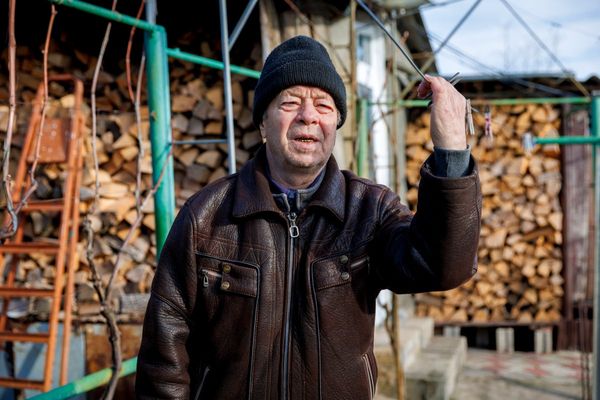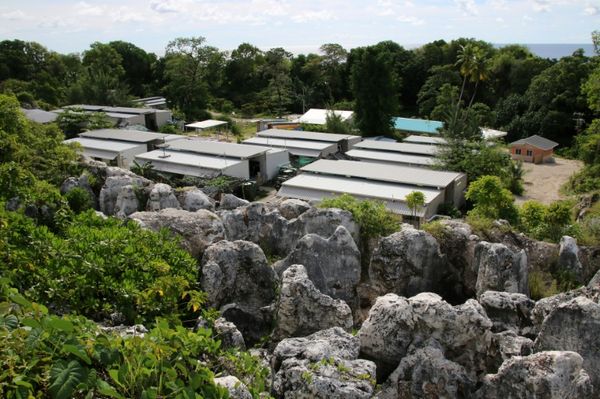
A Woman’s Choice, an abortion clinic in Jacksonville, usually sees somewhere between 10 and 15 patients a day. But last week, they extended their hours. On Monday, they scheduled somewhere between 70 and 80 patients, according to the Washington Post. The president of one reproductive health center spoke of warning her incoming patients about the scenes they would encounter at Florida’s abortion clinics. “We’re telling them, ‘Hey, it’s going to be busy,’” said Kelly Flynn.
For some, a deadline loomed after an anxious period of trying to scrape together the funding for the care they need: one doctor recalled calling patients who had delayed their appointments – in most cases because they hadn’t been able to secure enough money for the procedure yet – and reminding them that they don’t have much more time. For other women, a sudden realization led to a last-minute scramble. “One patient this morning told me that she had just gone for a regular doctor’s appointment last week and found out she was pregnant,” a clinician told the Florida news radio station WOKV.
Florida abortion providers were rushing to perform as many abortions as they could this week, as the days and then the hours dwindled before Florida’s new six-week ban went into effect at the stroke of midnight on Wednesday. And women, both across Florida and across the south, were rushing to find money, to find transportation, to find a doctor and an appointment in order to end their pregnancies before the law took hold – a last, desperate rush to control their bodies and their futures before the freedom to do so was taken from them.
By now the images are familiar. Similar scenes unfolded across many states in June of 2022, when doctors and nurses rushed to provide as much care as they could before the US supreme court issued its long-awaited Dobbs ruling, striking down the abortion right nationwide and rendering abortion immediately illegal in states with so-called trigger bans. Then the scenes played out again as ban after ban went into effect, either timed by statute or imposed by courts, removing women’s rights in one state after another.
The bans spread like an infection, creeping across the country irregularly, with access flickering in and out in the months that followed. But every new imposed law meant thousands of human catastrophes. Women sat in crowded waiting rooms, waiting to hear whether their lives and their bodies were still under their control, and state by state they learned, from clinic staff reading the news, from locked doors and apologies, or from the rushed translations of their fellow patients sitting beside them in vinyl chairs – that they weren’t.
What played out in Florida this past week was part of the anti-choice movement’s new sadistic regime for a post-Roe America: the display of lives being curtailed, of dignity being withdrawn, of health being imperiled. It is a public and deliberately humiliating spectacle for American women: one of freedom being taken away.
The six-week abortion ban that went into effect in Florida on Wednesday is similar to those imposed by other states in the region. (Florida, with its former 15-week ban, had been a place of relatively easy access in the south, and so had become a destination for women from other states; no longer.) Now, all abortions are banned after six weeks’ gestational age, which is two weeks after a missed period. A pre-Dobbs 24-hour waiting period still applies. There is a rape exception that is available only in the first 15 weeks, and only to women who can provide some “proof” of their assault, like a police report. There are exceptions for the life of the mother and for “immediately fatal” fetal abnormalities.
“Immediately fatal” is a phrase the law does not define. “I’ve asked three attorneys: what does immediately fatal mean?” one provider told the Orlando Sentinel. “And one told me one day, one told me one week, and one told me a month. How am I supposed to interpret this?”
But ultimately, even vaguely worded exceptions are a moot point: like all abortion ban exceptions, Florida’s will not be accessible, even to the narrow slice of women who might qualify, because providers will be too afraid to provide even those abortions that are technically legal in a state where performing an abortion that a prosecutor thinks is illegal could earn them a felony conviction. This is already happening in the state: under the previous, 15-week ban, women have almost died after experiencing complications that they have not been able to receive treatment for. Some have been turned away from emergency rooms.
In November, Florida voters will have an opportunity to enshrine abortion rights into their state constitution in Amendment 4, which would restore access in the state to Roe-era levels. But victory for the amendment is far from certain, and at any rate, the vote is a long six months away. In the meantime, under the new, stricter ban, things will only get worse.
Like so much in our political life, the status of women more broadly seems to only be getting worse. The abortion bans that have swept the nation after Dobbs have drawn the most attention for their murderous cruelty, for the women whose lives have been endangered and warped because hateful laws deny them care in moments of medical emergency. But they have also stolen dignity and basic freedom from American women, transformed so many of their lives into different and unchosen ones, marked their bodies as sites of legally mandated debasement.
The scenes that played out in Florida this week – the overworked nurses, the crammed schedules, the desperate rush – are themselves an indignity, because they represent something that no American should have to endure: the withdrawal of a right that is fundamental to their citizenship. This is what it looks like when life becomes smaller, crueler and less free. It is an ugly sight.
By now it is almost trite to reference Martin Luther King’s famous line: that the moral arc of the universe is long, but it bends towards justice. The line has been misused, but it does represent a neat encapsulation of what American liberalism has long identified as its guiding assumption: that with time and faith and dutiful effort, the moral claims to justice and dignity for all people will be recognized – and that all people, regardless of their race or creed or sex, will one day be recognized by laws, institutions and their fellows as equals.
The images from Florida – and which have played out in every state where abortion has been banned – remind us with brutal clarity that this is not necessarily true: that injustice can persist, and that the march of equality can go backwards. It will require a herculean effort, and sacrifices few of us can countenance, to put it back aright.
Moira Donegan is a Guardian US columnist







